The many new faces of bak kut teh
Not willing to let the image of this traditional dish languish, bak kut teh eateries are jazzing up their offerings with new ingredients and serving styles
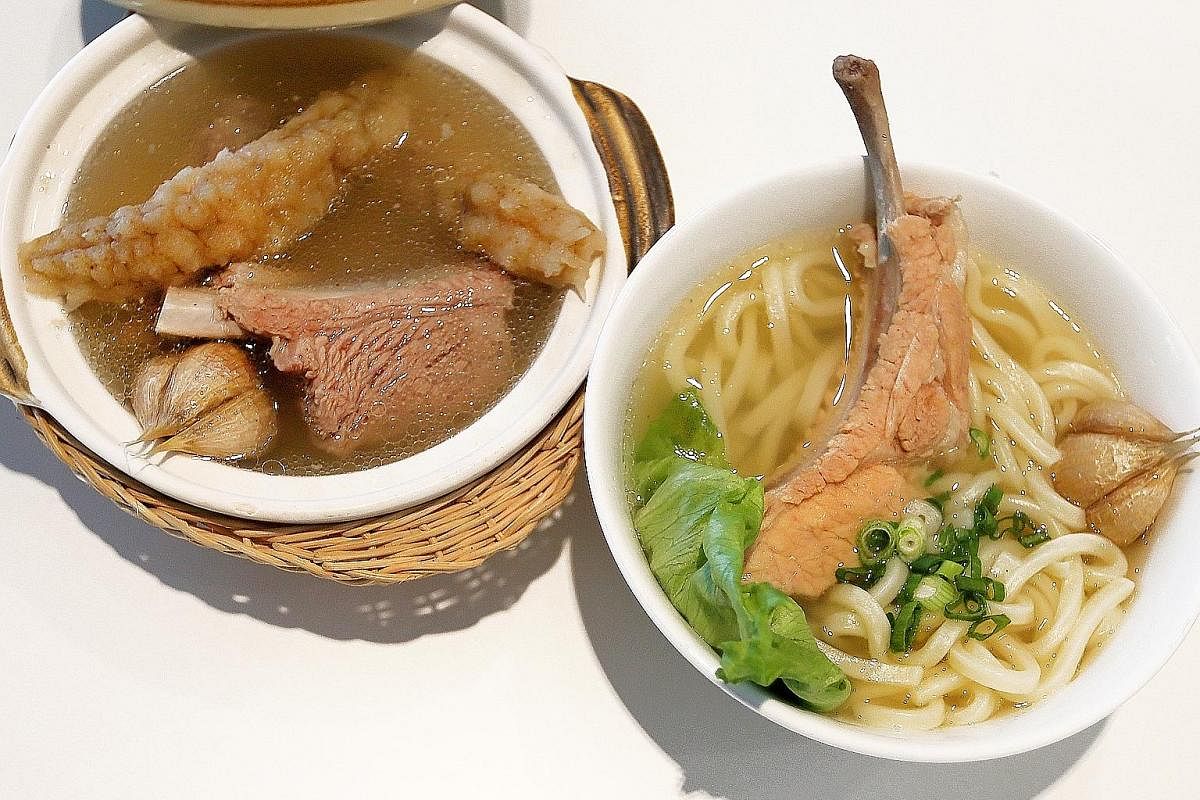
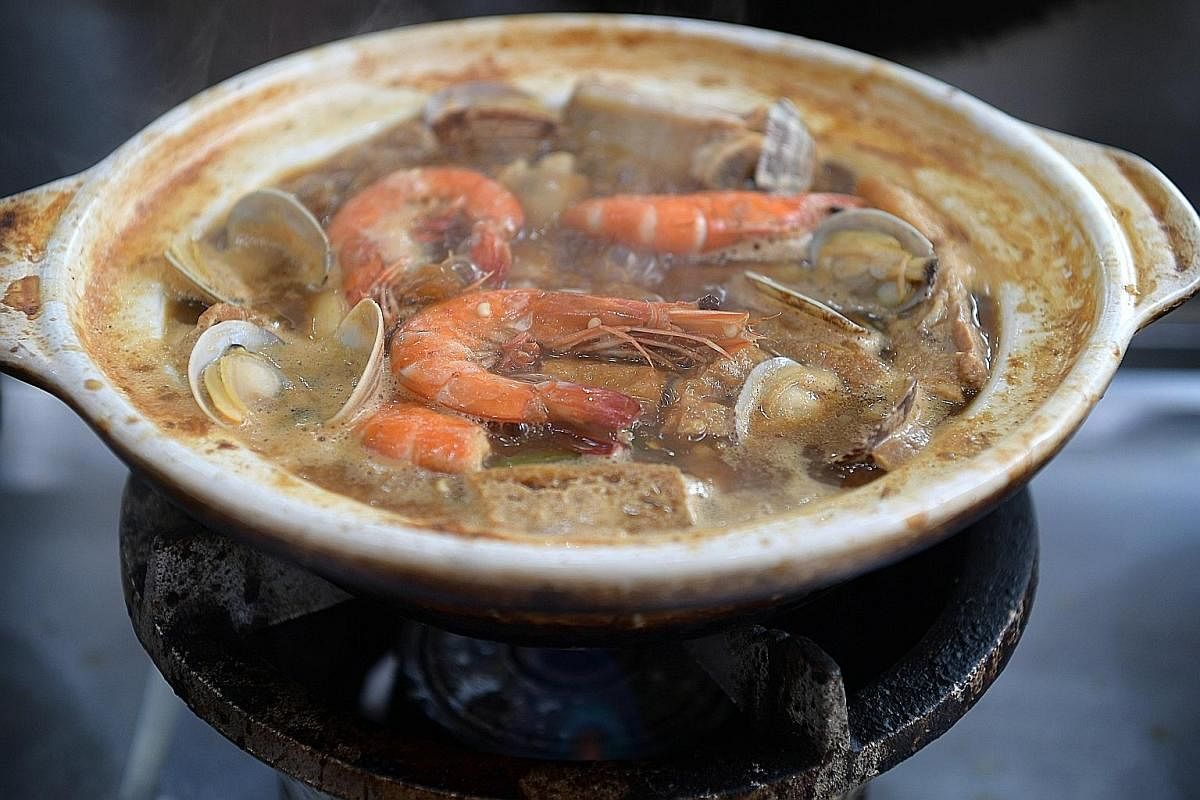
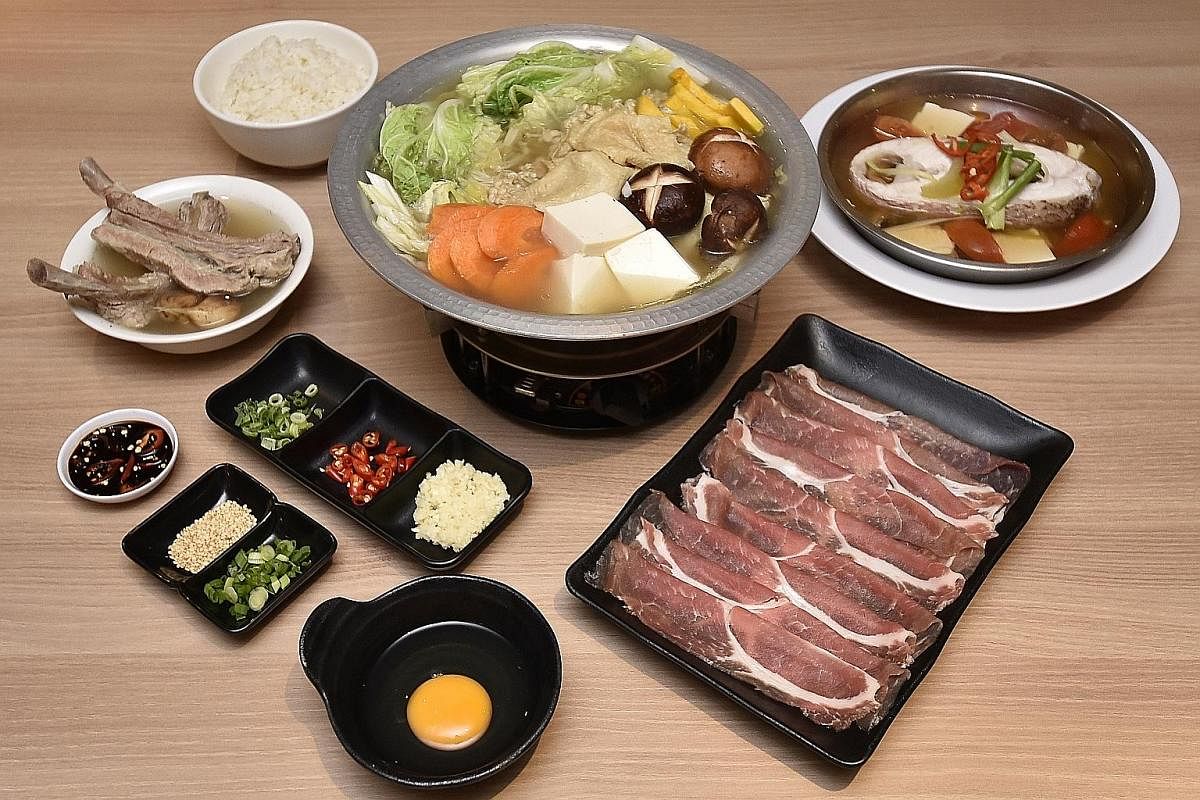
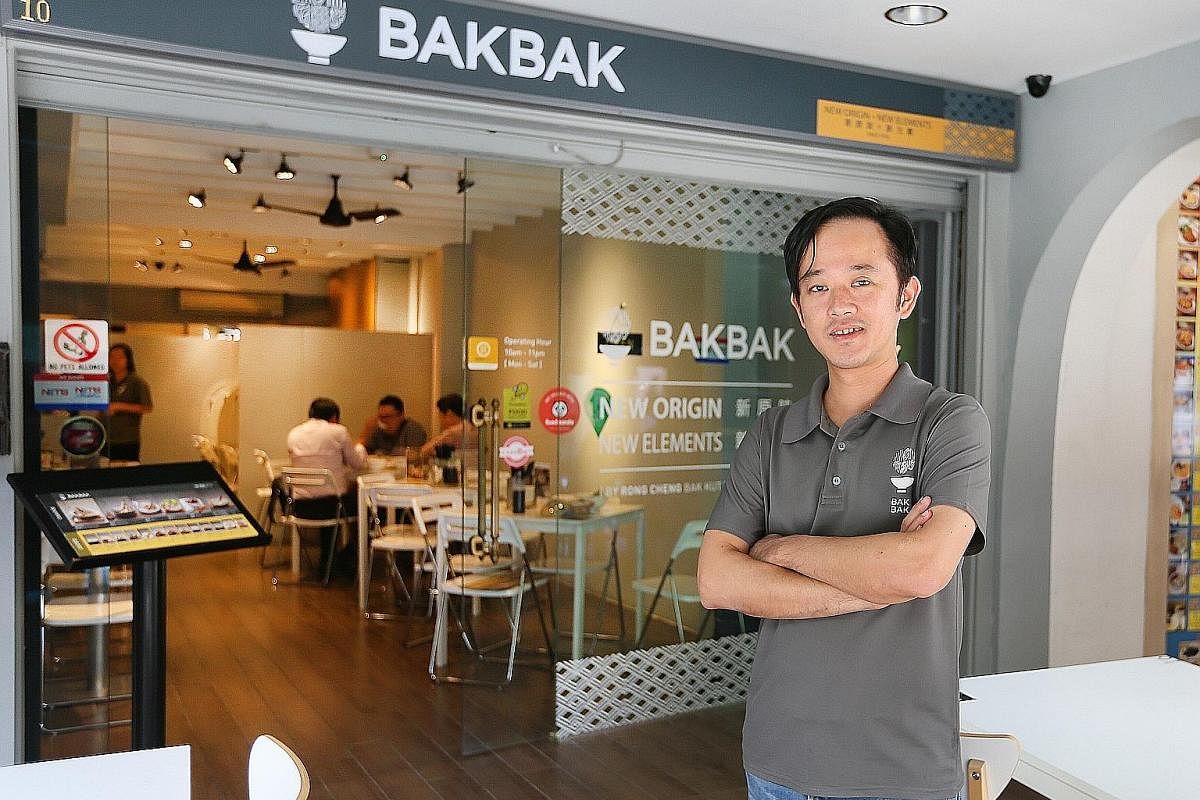
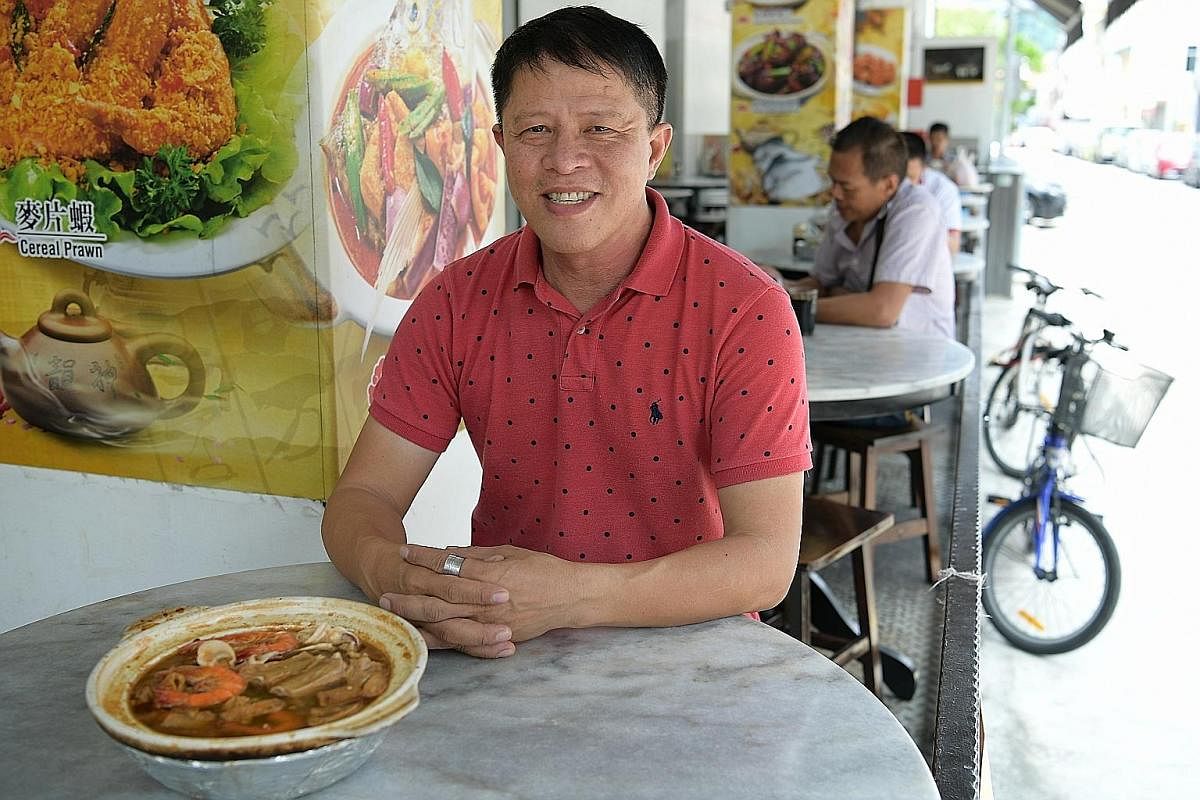
Bak kut teh, the classic pork rib soup, is catching up with the times.
Over the past year, established brands such as Rong Cheng, Ya Hua and Founder Rou Gu Cha Cafeteria have expanded into the Central Business District and malls.
Rong Cheng, which has been operating in the Sin Ming estate for about 40 years, opened an outlet in Circular Road called BakBak in July.
Ya Hua opened its first full-fledged outlet in town in Raffles City Shopping Centre last September and will open at Northpoint City its sixth outlet in early December.
Founder Rou Gu Cha Cafeteria also started its third outlet in Bugis last month.
Besides the expansion of these old-timers, at least two new players from Malaysia have also entered the scene. They are Kee Hiong and Ah Tou, both specialising in the Klang version of the soup, which is darker and more herbal.
Besides sprucing up the interiors and using technology for their operations, bak kut teh eateries are giving the dish a modern makeover to attract younger diners and tourists.
Among them is BakBak, which is run by Rong Cheng's second-generation owner, Mr Lionel Lim.
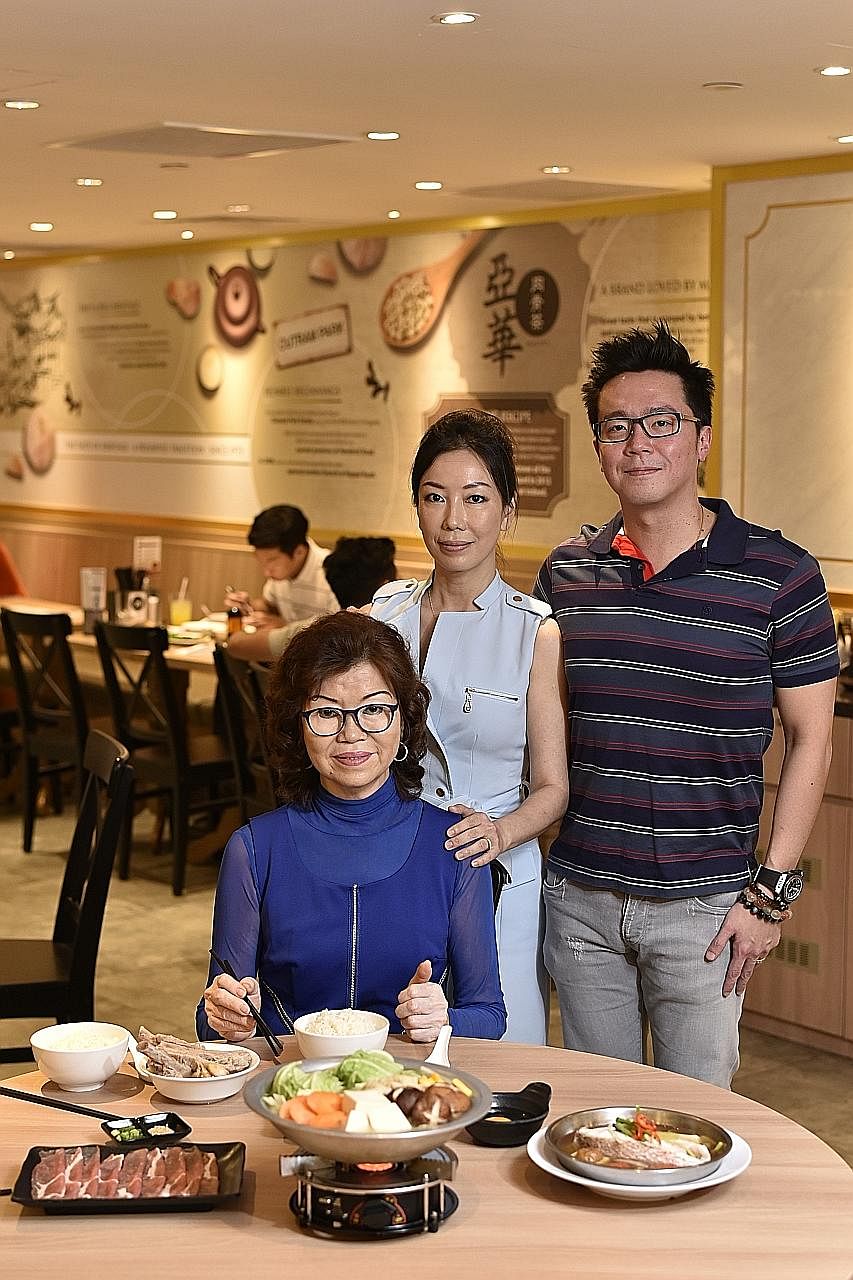
The 43-year-old has rejuvenated his father's recipe for Teochew-style pork rib soup, which is cooked with white peppercorns and garlic, to create two new dishes. They are sea cucumber bak kut teh and sanuki udon with the meatier pork loin ribs.
Mr Lim has also excluded offal such as intestines and liver from BakBak's menu as "they do not appeal to young people". Offal is still available at Rong Cheng.
Besides the usual braised peanuts and salted vegetables, creative side dishes include crispy fish skin, chawanmushi and skewered fried dough sticks which are less messy to dip into the soup.
Forget the traditional gongfu tea. Diners can wash their food down with refreshing carbonated iced lychee red tea.
Later this month, two new dishes will be rolled out: barbecued pork ribs paired with craft beers to cater to the office crowd in the Central Business District and a bak kut teh burger made with de-boned pork rib slathered with minced garlic.
Mr Lim, who took over the business from his father in 2010, decided to give Rong Cheng's spin-off brand a catchy name so that it can be easily remembered.
He says: "Bak kut teh restaurants have remained the same for a long time with standardised menus and decor. If I do not innovate and revamp to capture the attention of trend-chasing youngsters, my business will gradually fade away."
Also giving bak kut teh an innovative twist is the Old Street Bak Kut Teh chain, which launched seafood and laksa bak kut teh in March.
The seafood bak kut teh comprises crab, prawns, lala clams and pork ribs, while the laksa version has laksa paste stirred into the peppery broth.
Mr Jason Lim, 52, owner of Old Street, says: "We need to move away from the traditional style and attract young people to new forms of bak kut teh as they are more adventurous and willing to try new flavours."
To draw younger customers, he started opening outlets in malls from 2013. Over the past four years, he has seen sales increase by 50 per cent year-on-year, with people in their 20s making up the bulk of his customers.
Old Street's 16th outlet will open at Changi Airport Terminal 4 later this month.
Ya Hua Bak Kut Teh, a 26-year-old brand that is famed for its robust Teochew-style soup, is also revamping its business.
In April, it launched a steamboat porridge set with eight ingredients such as pork slices, vegetables and mushrooms cooked in a hotpot of peppery broth.
Mr Wong Choon Yen, 46, Ya Hua's second-generation co-owner, says: "Given the competitive food scene, we need to adapt quickly to food trends."
Besides food, ordering systems and serving formats at bak kut teh eateries have also been overhauled.
At BakBak, diners can order and pay for their food by scanning a QR code via the ServedByAlfred app. There is also a row of dining booths for solo customers that seat just one person each.
Tuan Yuan Pork Ribs Soup, which opened in January last year in Kim Tian Road, has rolled out an eponymous app. It allows diners to customise the amount of pepper and the garnish for the soup, on top of making orders.
Owner Gwee Song How, 54, says: "This app helps to reduce manpower needs and is a more efficient and environment-friendly way of ordering food without leaving a paper trail."
About half of his customers order their food via the app on their mobile phones.
One of the early birds in taking bak kut teh into malls is the Bib Gourmand-lauded Song Fa, which opened its eighth outlet at Northpoint City in July.
It started its first mall outlet in Seletar Mall in 2014.
At its outlets, the interiors are designed to "tell stories and evoke memories" of the location. Each outlet has a gongfu tea bar, where diners can try their hand at brewing tea.
The expansion of the local bak kut teh scene has also been fuelled by tourists' growing interest in it over the past decade and Song Fa is popular with them.
About one-third of the customers at its New Bridge Road outlet are tourists from countries such as South Korea and Japan.
Ms Diana Yeo, 39, Song Fa's brand and development manager, says: "Bak kut teh has joined the ranks of chilli crab and chicken rice as one of the must-try local dishes here. Many tourists know about the dish through social media and travel guide books."
In July, Song Fa announced its partnership with the BreadTalk Group to open outlets in China and Thailand. The first one will be in Shanghai this year.
At Founder, which intends to branch out to Vietnam this year, tourists make up 40 per cent of its business. Its Hotel Boss outlet in Jalan Sultan is swamped with so many tour groups that it opened its third outlet in Bugis last month to cater to local customers.
Its second-generation owner Nigel Chua, 44, says: "Most of the tourists know about us via social media and many are impressed by the celebrity customers who have visited our original shop in Balestier Road."
Despite the growth in the bak kut teh scene, some are cautious about its recent rapid expansion.
Ya Hua's Mr Wong is worried that the influx of new players will tarnish the image of the dish. He says: "Bak kut teh is a popular all-day dish here and some of the newcomers are cashing in on the fad by using lower quality ingredients."
Diners, however, are happy about bak kut teh's new wave.
Bank relationship manager Tang Wei Liang, 41, who goes for his bak kut teh fix twice a month, says: "I would like to try the jazzed-up versions of this traditional dish."
Malaysian imports
Over the past year, two Malaysian bak kut teh eateries have made their debut here.
They specialise in the Klang version of the pork rib soup that comes in a darker hue with a herbal taste.
One of them is Ah Tou Seafood Bak Kut Teh, which was started in Klang, Malaysia, 40 years ago.
It opened an outlet in 291 Geylang Lorong 1 in October last year and another one in Balestier Road in June this year.
According to its co-owner, Mr Zhong Zhi Xin, 52, the restaurant is known as Ah Tau Seafood Bak Kut Teh in Klang, but there was a mix-up when he registered the name for the Singapore outlet.
Ah Tou's signature dish, seafood bak kut teh (from $15), comprises 11 ingredients such as clams, prawns, squid, fish, sea asparagus, abalone and pork ribs, cooked in a light herbal broth.
Mr Zhong says his cousin created the dish 25 years ago after many customers took their seafood to Ah Tau's seaside eatery in Klang and asked for it to be cooked in their bak kut teh soup.
Despite the seafood bak kut teh being a hot-seller in Malaysia, response to the dish here has been lukewarm.
About 30 servings of it are sold daily, as compared with more than 100 servings of its bak kut teh soup.
Mr Zhong says: "Some diners think it is weird to have seafood with bak kut teh and are not used to the taste, but this dish has helped us to stand out in the competitive scene here."
Another newcomer is Kee Hiong Klang Bak Kut Teh, which opened at People's Park Centre in September last year. It will open another outlet in Alexandra Hospital later this month.
Kee Hiong, which was started in the 1960s in Klang, has seven outlets in Malaysia.
It is brought here by a group of Singapore-based fans who frequent the outlets in Malaysia.
According to co-owner Sherlyn Wong, Kee Hiong is started by Mr Johnny Lee, grandson of Mr Lee Boon Teh, a Chinese physician who is believed to have brought pork rib soup (bak kut) to Klang in the 1940s. The word "teh" that was added to the dish came from his name, she says.
Unlike other Klang-style bak kut teh here, Kee Hiong offers meatier cuts of pork such as leg bone for Tua Kut ($9.50).
And exclusive to the Singapore outlet is the Klang Cut ($7.50), which has a "sampling assortment" of cuts such as shank, trotter and belly.
The meat is cooked for about two hours in a flavourful broth concocted with 16 herbs.
Another popular dish is Dry Bak Kut Teh ($8.80) which is cooked with a reduced herbal sauce and dark soya sauce and served with okra and cuttlefish.
To ensure that the taste of the food remains consistent, a chef from one of Kee Hiong's Malaysian outlets is based here and ingredients such as black garlic and rice wine are imported from Malaysia.
Join ST's Telegram channel and get the latest breaking news delivered to you.
A version of this article appeared in the print edition of The Sunday Times on October 01, 2017, with the headline The many new faces of bak kut teh. Subscribe

